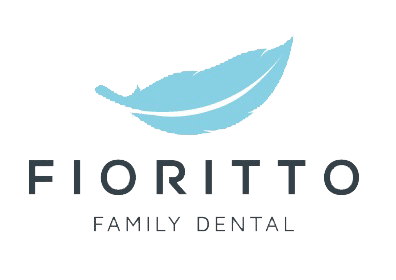How’s your sleep these days? Many of us work stressful jobs and juggle numerous other obligations, which can interfere with sleep quality. However, excessive daytime sleepiness, waking up with a sore jaw and other symptoms can indicate a more serious problem.
Sleep apnea is a condition where a person’s throat muscles obstruct their airways when they’re asleep. As a result, they stop breathing, and wake up choking or gasping for breath. People with sleep apnea report rarely feeling rested. If you wake up tired, no matter how long you sleep, you may have sleep apnea—and there’s a link to your dental health.
The dentists at Fioritto Family Dental can help you address the dental health portion of sleep apnea.
Bruxism and sleep apnea
Millions of people grind their teeth. This is called bruxism. Sleep apnea can cause bruxism (although not every case of bruxism is linked to sleep apnea). How can you tell the difference?
If you’re waking up with these symptoms, talk to your medical doctor and one of our dentists as soon as possible:
- Constant tiredness, even after a full night’s sleep
- Waking up gasping, choking or short of breath
- Problems with memory, concentration and irritability
- Snoring
- Sore jaw
- Tight jaw muscles
- Waking up with dry mouth, sore throat and headache
Children may wet the bed, while adults might find themselves waking up to go to the bathroom frequently. While some of these symptoms can be attributed to other causes, your Fioritto dentist can tell you whether you’ve been grinding your teeth.
Sleep apnea is bad enough, but bruxism threatens your dental health, too. If left untreated, grinding your teeth can break down enamel and damage your fillings and crowns. Fortunately, there are solutions.
How to treat bruxism
If your bruxism is mild to moderate, we may be able to solve the problem with mouthguards and splints alone. Our dentists will examine your teeth for signs of bruxism. Depending on the damage, a mouthguard may be all you need to protect your teeth.
When the damage is severe, we may recommend other solutions. Our dentists can repair cracked teeth and damaged fillings. You may also need to have your teeth resurfaced, which can help repair the damage and enable you to chew properly.
How to treat sleep apnea
In addition to making dental appointments, we urge you to visit your medical doctor, too. Sleep apnea can be treated with some simple lifestyle changes, including:
- Using a humidifier at night
- Losing weight (obesity is a contributing cause of sleep apnea)
- Quit smoking (causes inflammation and swelling of the throat)
- Limit or quit drinking alcohol (can contribute to relaxed throat muscles blocking airways)
- Sleep on your side or stomach
- Should the lifestyle changes be insufficient, your doctor may recommend a sleep study or a C-PAP machine.
Whatever our dentists and your doctor prescribe, remember that sleep apnea has far reaching effects—including bruxism.
Fioritto Family Dental is here to help patients diagnose and treat their sleep apnea-related dental problems. Call us today for an appointment.
